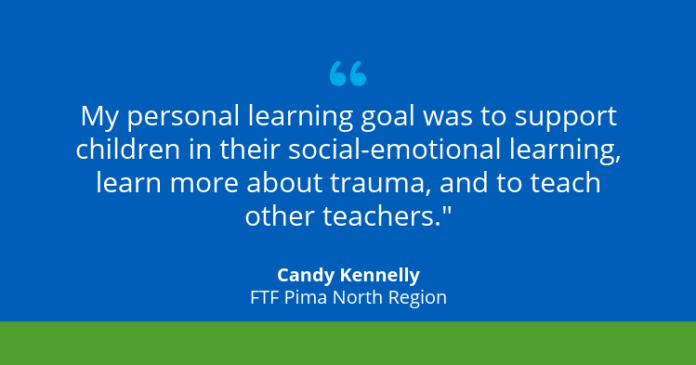Post-Traumatic Stress Disorder (PTSD) is a mental health condition triggered by experiencing or witnessing traumatic events. While its effects on mental and emotional well-being are widely acknowledged, the impact of PTSD on career advancement and personal growth is often less understood. Individuals with PTSD may face unique challenges in the workplace, from managing symptoms to maintaining consistent performance. However, with the right strategies, support systems, and personal development techniques, it is possible to navigate these obstacles and thrive both professionally and personally. This article explores the ways PTSD affects career paths, offers insights into coping mechanisms, and highlights resources and success stories of individuals overcoming PTSD to achieve their goals.
Dive deep into this topic alongside terylblog.com
1. Definition and Overview of PTSD
Post-Traumatic Stress Disorder (PTSD) is a mental health condition that develops in individuals after experiencing or witnessing traumatic events, such as accidents, natural disasters, combat, or abuse. It is characterized by intense emotional and psychological responses that may include flashbacks, nightmares, anxiety, and emotional numbness. These reactions often persist long after the event, interfering with daily life and overall well-being.
PTSD affects individuals differently, with symptoms sometimes emerging immediately after the trauma or appearing months or even years later. The condition is not limited to any particular age group or profession, though it is often associated with military personnel and first responders. However, PTSD can affect anyone who has been exposed to significant trauma.
The disorder can also be categorized into various types, including acute PTSD (symptoms lasting less than three months), chronic PTSD (lasting longer than three months), and delayed-onset PTSD (symptoms appearing six months or more after the event). Understanding the complexities of PTSD is essential to addressing its impact on personal and professional life.

2. Common Symptoms and Triggers
PTSD manifests through a range of symptoms that can significantly disrupt daily functioning. Common symptoms include intrusive thoughts, such as flashbacks or nightmares, where individuals relive the traumatic event. These experiences can trigger intense emotional reactions like fear, anxiety, or panic. Emotional numbness and detachment from others are also frequent, leading to difficulties in relationships and social interactions.
Other symptoms include hyperarousal, which causes heightened sensitivity to stimuli, resulting in irritability, difficulty concentrating, and trouble sleeping. Individuals may also exhibit avoidance behaviors, steering clear of people, places, or situations that remind them of the trauma.
PTSD triggers are specific experiences or environments that evoke memories of the original trauma. These can include sounds, smells, or sights associated with the event, or even more abstract triggers, such as anniversaries of the incident. The unpredictable nature of these triggers makes managing PTSD challenging, especially in professional settings where one may not have control over their environment. Recognizing these symptoms and triggers is key to effectively addressing and managing PTSD.

3. How PTSD Affects Workplace Performance
PTSD can significantly impact workplace performance, often making it difficult for individuals to meet professional expectations. Concentration and focus may suffer as intrusive thoughts or flashbacks interrupt tasks, leading to decreased productivity. Hyperarousal can cause individuals to become easily startled or agitated by sudden noises or unexpected situations, further complicating their ability to function in a fast-paced or high-stress environment.
Avoidance behaviors may also limit engagement with coworkers or certain work-related activities, especially if they trigger reminders of past trauma. This can result in missed deadlines, poor collaboration, or a reluctance to take on new responsibilities. Additionally, emotional numbness may affect interpersonal relationships, causing individuals with PTSD to seem distant or disengaged, which can negatively impact teamwork and communication.
Sleep disturbances, another common symptom of PTSD, can lead to chronic fatigue, impairing decision-making and increasing the likelihood of errors. These challenges can create a cycle of stress and frustration, potentially exacerbating the symptoms of PTSD. Without proper support, the condition can hinder both career advancement and overall job satisfaction.

4. Strategies for Managing PTSD in a Professional Setting
Managing PTSD in a professional setting requires a combination of self-awareness, coping strategies, and supportive work environments. One of the most effective strategies is developing a structured daily routine that minimizes stress and uncertainty, helping individuals stay grounded and focused. Time management techniques, such as breaking tasks into smaller steps and setting realistic goals, can also reduce feelings of overwhelm.
Communication is key when managing PTSD at work. Employees can benefit from discussing their condition with a trusted supervisor or HR representative to establish accommodations, such as flexible work hours or designated quiet spaces. This allows for adjustments that can help prevent triggers or provide a refuge when symptoms arise.
Practicing mindfulness and grounding techniques during moments of heightened stress can help individuals regain control and stay present in their work tasks. Breathing exercises, meditation, or short breaks can help calm hyperarousal symptoms.
Seeking professional support, such as therapy or counseling, is also crucial in learning how to navigate PTSD in the workplace. Cognitive-behavioral therapy (CBT) or Eye Movement Desensitization and Reprocessing (EMDR) can offer effective tools for managing triggers and anxiety. With the right combination of self-care, workplace adjustments, and professional help, individuals with PTSD can maintain productivity and job satisfaction.
5. The Role of Employers in Supporting Employees with PTSD
Employers play a crucial role in supporting employees with PTSD by creating an inclusive and accommodating work environment. This begins with fostering a culture of understanding and empathy, where mental health is openly discussed and stigma is reduced. Employers can implement workplace policies that provide flexibility, such as allowing for modified work hours or remote work options, to help employees manage their symptoms effectively.
Providing access to mental health resources, such as Employee Assistance Programs (EAPs) or counseling services, can offer additional support. Training for managers and supervisors on recognizing and addressing PTSD-related challenges can enhance their ability to offer appropriate accommodations and support.
Creating a safe and supportive workspace, including quiet areas for breaks or confidential spaces for discussions, can help mitigate triggers and reduce stress. Regular check-ins and open communication channels also allow employees to voice their needs and concerns, ensuring they feel valued and understood. By actively supporting employees with PTSD, employers can promote a more productive and positive work environment.
6. Personal Development Techniques to Cope with PTSD
Personal development techniques play a vital role in managing PTSD and fostering resilience. One effective method is practicing mindfulness and meditation, which can help individuals stay grounded and reduce anxiety. Techniques such as deep breathing exercises, progressive muscle relaxation, and guided imagery can calm the nervous system and alleviate symptoms of hyperarousal.
Developing a regular exercise routine is also beneficial. Physical activity releases endorphins, which can improve mood and reduce stress. Activities like yoga, walking, or strength training can provide both physical and mental relief from PTSD symptoms.
Building a strong support network is crucial. Engaging in regular therapy or support groups allows individuals to share their experiences and receive guidance from professionals and peers who understand their struggles. Cognitive-behavioral therapy (CBT) and Eye Movement Desensitization and Reprocessing (EMDR) are specific therapeutic approaches that can help reframe negative thoughts and process traumatic memories.
Additionally, setting small, achievable personal goals can create a sense of accomplishment and control. Journaling about feelings and experiences can also offer insight and emotional relief. By integrating these techniques into daily life, individuals with PTSD can enhance their coping strategies and work towards personal growth and stability.
7. Success Stories: Overcoming PTSD and Advancing in Career
Success stories of individuals overcoming PTSD and advancing in their careers illustrate the resilience and potential for growth despite the challenges of the disorder. For instance, a former military service member who struggled with PTSD found success by leveraging therapy and support networks to manage symptoms. By advocating for accommodations at work and focusing on personal development, they transitioned into a leadership role, using their experiences to mentor others facing similar struggles.
Another example is a healthcare professional who, after experiencing trauma in the field, utilized mindfulness and exercise to cope with PTSD. With the support of a compassionate employer who provided flexible hours and a quiet workspace, they not only maintained their position but also progressed to a more senior role within their organization.
These stories highlight that with the right support systems, therapeutic interventions, and personal strategies, individuals with PTSD can achieve career advancement and personal fulfillment. Their experiences serve as powerful reminders that overcoming PTSD is possible and can lead to significant professional and personal growth.
8. Resources and Support Networks for Individuals with PTSD
A variety of resources and support networks are available to individuals with PTSD, offering assistance in managing symptoms and achieving personal and professional goals. Mental health professionals, including psychologists and psychiatrists, provide specialized therapies such as Cognitive Behavioral Therapy (CBT) and Eye Movement Desensitization and Reprocessing (EMDR), which are effective in treating PTSD.
Support groups, both in-person and online, offer a space for individuals to share their experiences, gain support, and learn from others who understand their challenges. Organizations like the National Center for PTSD and the Anxiety and Depression Association of America provide valuable information and resources for managing PTSD.
Employee Assistance Programs (EAPs) offered by many employers can connect individuals with counseling services and mental health support. Additionally, non-profit organizations such as the Veterans Affairs (VA) and various mental health advocacy groups offer resources tailored to specific needs, including financial assistance and educational programs.
For those seeking immediate support, crisis hotlines and chat services, such as the National Suicide Prevention Lifeline, provide confidential assistance. Engaging with these resources can significantly aid in managing PTSD and fostering personal and professional growth.
Managing PTSD in a professional setting requires a comprehensive approach, combining personal development techniques, workplace accommodations, and supportive resources. By understanding the impact of PTSD on career advancement and utilizing effective strategies for coping, individuals can overcome significant challenges and achieve personal and professional growth. Success stories demonstrate that with resilience and the right support, it is possible to navigate the complexities of PTSD and excel in one’s career. Ongoing support from employers, mental health professionals, and support networks plays a crucial role in fostering an environment where individuals with PTSD can thrive.
terylblog.com
